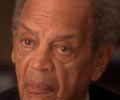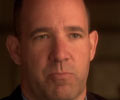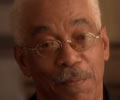- Highlights
- Iowa Win
- NH Loss
- SC Win
- Penn. Loss
- The Blue-Collar Challenge
- Race and Voters
- The Delegate Game
- People
- David Axelrod
- Robert Gibbs
- Cassandra Butts
- Matt Bai
- Jeff Zeleny
- Charlie Cook
- Gail Sheehy
- Mark Halperin
- Roger Wilkins
- Dan Balz
- Ron Brownstein
- Matthew Dowd
- Debra Dickerson
- Salim Muwakkil
- Kenneth Mack
- Robert Gibbs
- Related Links
- A Delegator, Obama Picks When to Take Reins
Obama becomes a more engaged manager after the loss in the Penn. primary. (The New York Times, June 16, 2008) - The Machinery of Hope
"Inside the grass-roots field operation of Barack Obama, who is transforming the way political campaigns are run" (Rolling Stone, March 20, 2008) - Obama's Brain Trust
"The candidate's handpicked team of top advisers has raised more than $250 million, outmaneuvered the Clintons and created a formidable grass-roots political machine." (Rolling Stone, July 10, 2008) - The Front-Runner's Fall
"Hillary Clinton's campaign was undone by a clash of personalities more toxic than anyone imagined." (The Atlantic, September 2008) - Obama and blue collars: Do they fit?
Ron Brownstein's early assessment from March 2007. (The Los Angeles Times)
Iowa Win
David Axelrod Chief strategist, Obama campaign
 Read the full interview >
Read the full interview >
The night that Obama won the Iowa caucuses was one of the most emotional nights of the campaign because we knew that it was a sort of make-or-break deal. We'd all been working hard for a year at that point on this and the enormity of it was clear to all of us. We thought if you could win Iowa, you're in a really good position to win the nomination. I don't think any of us had a sense that it would be 53 more contests before we did. …
Robert Gibbs Communications director, Obama campaign

In Iowa, you bring out a votership that was not expected, and the Clinton people didn't believe, didn't get it.
No one did. It wasn't just the Clintons. It was every reporter we've ever talked to.
What was your thinking? The Democratic Party has been looking to make a new coalition of voters since New Deal fell apart. Did you guys think in broad terms about what you were doing and what you had to do to win in creating new coalitions? How is that defined in Iowa?
We knew that we had a candidate who had the ability to remake the composition of the electorate in Iowa. And we knew that that was one of the things quite frankly that we had to do in order to be successful; that if we had the normal electorate that had showed up in the previous four years, that probably wasn't going to be a big help to us; that we had to go out and make sure that the electorate that showed up that night looked different and was different than anything that Iowa had ever seen.
That meant we did things a little bit differently. We specifically targeted young people. We specifically targeted college students. We specifically targeted young adults. If you are going to be 18 for the general election, you can participate in the Iowa caucuses. So we had an outreach effort in high schools.
The key in the Iowa caucus is you've got to get people to come to a town hall meeting. … We had a very sophisticated effort, not just to get people there, but to make sure that we were talking to high schoolers, college students, young adults, but also union members, seniors, the traditional caucus-goers, so. We figured very early on that the key was changing the way this electorate looked. …
You win Iowa. Election night -- confident? Worried? Amazed?
It is just massive anxiety, truthfully. The whole build-up of that day -- I mean, we had basically worked for a year for a window of time that lasted a couple of hours. It's true with every election day; you spend a massive amount of time and energy and resources to motivate an electorate that you hope is there for a very, very short window, very short period of time.
We felt good going in. We felt energized. We could see the crowds. One of the things that we used to have Barack do and that he liked to do -- this was also sort of to try to prove to skeptical reporters that we were doing something different -- is we'd have these massive town hall meetings. You'd have 500 people or 1,000 people. You'd sometimes start out by saying, "Raise your hand if you're going to caucus, but you've never been to the caucus before." And all these hands would go up. And it wasn't until the very end that this was poignant and the reporters began to understand that these guys may be onto something, that what we'd been trying to tell them for months we had actually put together.
But I can remember just massive anxiety leading up to that night. We start to initially get turnout reports, very anecdotal. The lines are out the door. They've run out of this here. This caucus site is -- they're basically moving down the hall to a bigger room. That type of stuff. And at that point, I think we began to feel pretty good because we knew that the bigger that the electorate got, the better off we would do.
Cassandra Butts Harvard Law, class of '91; Obama adviser
 Read the full interview >
Read the full interview >
When Barack decided that he was going to run, it was his vision to run a campaign that was a grassroots organizing campaign, very much influenced by his community organizing experience. It was consistent with what we believed would be his strengths. We knew that Barack didn't have the kind of national infrastructure that Sen. Clinton had, and he would not be able to do what Sen. Clinton would be able to do in terms of fundraising. …
Rather than focusing on fundraising, we would focus on the organizing element, the number of people that we would be able to bring into the campaign. And that focus definitely made a difference in Iowa and in other caucus states. And that grassroots focus, to our surprise, turned out to be significantly important on the fundraising side, too, which just allowed the campaign to redouble its efforts on the organizing side when the money came in. …
Matt Bai The New York Times Magazine; author, The Argument

Obama in Iowa was pretty extraordinary. I've witnessed some pretty cool things in politics. Every four years there's something kind of wild. I went out with Howard Dean very early on, in 2003, and was just blown away by the crowds and the emotion. So it's not uncommon to see a phenomenon like that.
But Obama really had something going in Iowa. … He was packing thousands of people into really impressive venues. He was giving a long speech. A lot of people thought it was too long; it was approaching 45 minutes, an hour, in some cases. But he was holding the crowd. He was funny; he was sort of ironic. There was a real vibe in the room. …
The thing that I noticed as someone who'd seen a lot of campaigns was that … for all the campaigns the Clintons had run, for all the talent they've locked up early in the campaign, he was beating her in the operational aspects of the campaign in Iowa. He was beating her on the ground. He was beating her in the atmospherics. He was beating her in the organization.
And what that said to me was not that he was going to win and she was going to lose, so much that he wasn't going anywhere. This was not Howard Dean. This was not somebody who was just packing a lot of folks in a room, but didn't have a campaign who could grow with him, didn't have a campaign would could respond to the changing dynamic once you got out of Iowa and got to the rest of the country where it instantly gets a lot bigger. This was a guy who was running a really professional lockdown campaign operation. …
Jeff Zeleny The New York Times

[Obama] tried to, at the very beginning, not talk about race. When he was in Iowa, he would seldom visit black neighborhoods in Iowa. But his staff was going out and doing a lot of outreach in these neighborhoods and communities.
The town of Waterloo, Iowa is about 19 percent African American and there are about 36 predominantly black churches in this town in Iowa. He was invited again and again to speak at some of these churches. He would never accept an invitation to speak. He would send people from his staff. So the black vote, even as small as it was in the state of Iowa, was very important to him winning. Perhaps one of the things at the time we didn't know how important it was. But he would spend his Sundays visiting farmers in white areas and things. He would not visit the African American communities as much, because he did not want to be seen as a black politician.
Winning the white vote in Iowa, was all about sending a message to the black voters in South Carolina that he could win. It was not until he won Iowa, it was not until he was sort of seen as a formidable candidate, that he would later begin winning over majorities of black voters other places. …
NH Loss
David Axelrod Chief strategist, Obama campaign
 Read the full interview >
Read the full interview >
New Hampshire? … What happened? Overconfident?
You know, yes. We assumed that five days after the Iowa caucuses that if you won the Iowa caucuses and you had momentum, you could win the New Hampshire primary. And we went into New Hampshire with a lot of confidence and campaigned in a way that bespoke that confidence, probably more than we should have. And meanwhile, Sen. Clinton I think was very scrappy. She knew that her back was against the wall. That was the first time we saw that quality that became familiar to us throughout the campaign, this tenacious, pugnacious quality, and this ability to get close to the ground and close to people.
I think the other thing that happened was that all the polls showed us surging. And so the Saturday before the Tuesday in which there was voting, we had a big lead. There was a debate in which it appeared as if everybody was ganging up on Sen. Clinton. That Monday, she became emotional in an event. That got a lot of coverage. And I think that confluence of events just worked against us.
It was like a perfect storm, because people thought, "Well, Obama's got it," so this was a no-cost vote. Some of the independent voters who would have voted for us moved over to vote for McCain in the Republican primary. And we ended up losing by two points, though the polls all said we would win by double digits. …
The day after New Hampshire, we drove to Boston for a fundraiser that we thought was going to be a triumphant fundraiser. Instead, we had gotten this news from the voters of New Hampshire. Sen. Obama had gotten about three hours sleep. He had no notes. And he gave one of the great speeches of the campaign in talking about New Hampshire. He said, "I've been thinking about this and it may sound like spin to you, but I think this was meant to be." He said, "I think we were like Icarus flying too close to the sun. And this is not how change happens. Change is not meant to be easy. Change always comes with a struggle. No one wanted to hand us this. We have to fight for it. And let me tell you why it's important that we make that fight."
He just lit the room up and everybody left pumped up and excited. But I think his analysis was exactly right. We hadn't earned the right to be the nominee in New Hampshire. And the New Hampshire voters made that clear.
Charlie Cook The Cook Political Report

What they did to win New Hampshire was Sen. Clinton essentially took charge of the race herself. We've been told by many, many advisers that both her and President Clinton took charge of those few days, but mainly her herself. … It looked like she wanted it more. It looked like she was campaigning harder than Sen. Obama or Sen. Edwards at the time. And there were a handful of other people who were still in the race, other Democrats. But she was working harder.
That's the first time I think we saw the power of gender in this campaign. There was a debate on the Saturday before the New Hampshire primary, so three days before the primary, where a moderator was talking about likeability. And Sen. Obama said, "Hillary, you're likeable enough." It sounded like an arrogant thing to say. And that moment, right there, the minute he said it, some of Sen. Obama's advisers were cringing. Michelle, we're told, was furious, because it sounded like it was a slap at her personally.
And on that night and in the days forward, Sen. Clinton really got a lot of women voters behind her. And on the eve of the election, she sort of broke down in this moment, which seemed genuine and real, and it certainly proved politically so. And it was one of the moments of his campaign I think where he learned a lesson that this was not going to be easy.
Matt Bai The New York Times Magazine; author, The Argument

What did Obama learn by the Clinton victory in New Hampshire?
I don't know that he learned what he should have learned. I wrote something about this online just after New Hampshire … and I heard from quite a few people about it in the campaigns.
At the time my sense was … that he was in danger of becoming a cause and not a candidate. My sense coming out of New Hampshire was that, whereas she had made herself a little more human and a little more accessible, he had started to feel a little much like Howard Dean or a Gene McCarthy or a Jerry Brown or a Jesse Jackson -- like a guy who of the moment was just drawing in huge crowds and channeling a lot of energy, and packing them in, but not on a substantive level really interacting with people or answering questions. He was like a cause and causes don't win presidential nominations. They just make very good statements. It's people and candidates who win nominations. …
And what was interesting to me in the weeks and months ahead is I felt like this was a lesson Obama kept learning and relearning throughout the campaign. They would say they got it. Several times they came out defeats -- again, on Super Tuesday where they had again surged and then fallen back at the end; this happened several times, Nevada, they surged, they fell back -- and many times they would say, "Now we're going to do a more intimate venues. Now we're going to interact. Now he needs to show voters that he gets it on the issues, we're not just an inspirational cause."
But inevitably the thing seemed to tilt back toward this sort of inspirational aspect. It was almost as if he wanted to be the organizer in chief more than the commander in chief. That's really what got him going. In his concession speeches or his victory speeches, inevitably it came back to, "We're going to take it to the streets and change the country block-by-block." It was all very inspirational, but it wasn't terribly substantive. And I do think that he had the substance there; I just think it wasn't what was driving him as a candidate at that point.
SC Win
David Axelrod Chief strategist, Obama campaign
 Read the full interview >
Read the full interview >
… What was the effect of South Carolina on your campaign? And what was the debate over how Sen. Obama should respond to some of the things that were being said?
Let me say first of all, there were a handful of days in this campaign that were absolutely pivotal. The days around the South Carolina primary were one of those. The week before South Carolina was a really acrimonious week. Everybody knew a lot was on the line. President Clinton was campaigning vigorously in South Carolina for Sen. Clinton, and in ways that seemed very edgy. It was the first state in which there was a large black population, and the issue of race became front and center.
We had a very spirited debate with Sen. Clinton in Myrtle Beach during that week in which they really went at each other in a way that they hadn't before that, and didn't after. So the whole atmosphere was rife with tension.
And then the Friday before the primary, which was on a Saturday, there was a Mason-Dixon poll for NBC and it suggested that our support among white voters had basically collapsed; that we were going to get, like, 10 percent of that vote. And that became the storyline for the last 24 hours.
Well, when the votes were counted, we got closer to 30 percent of that vote and won a landslide. In fact, I was sitting with Michelle Obama doing an interview with her and my BlackBerry went off and it was the early exit polls. I stared at my BlackBerry and I said, "This can't be," because it said we were 30 points ahead. And I said, "I just don't believe it." … And she's going, "What? What?" And finally I say, "This says we're going to win by 30 points." And she said, "Don't ever do that to me again," because she assumed that it was going to be bad news.
And the speech he gave that night was one of the most incisive of the campaign in which there was some real edge to it. I think it went to sort of the fundamental differences he saw between the candidates in the campaign. And it was a hugely important night.
And then the next morning, Caroline Kennedy endorsed us on the pages of The New York Times. And, of course, Monday, Sen. Kennedy followed in this spectacular event in Washington. And the emotional lift of those three events I think propelled us through the month of February.
Cassandra Butts Harvard Law, class of '91; Obama adviser
 Read the full interview >
Read the full interview >
South Carolina became a real testing ground: Would he be able to appeal to African Americans? Would he be able to appeal to a good percentage of the white community in South Carolina, so that it didn't appear that it was all about the African American vote? …
I'm loathe to say that the race card was played, but race clearly became an issue. And the result was that he won an overwhelming majority of the African American vote, and won, I believe, 25 percent of the white vote, which was higher than had been predicted.
It was a resounding victory in South Carolina. I remember being at his victory speech in Columbia, S.C. ... You had people who had never had an experience of a black candidate winning the way he had won in South Carolina. It was a mixed crowd of African Americans, whites, Latinos, Asians, from different economic backgrounds, and this chant of "Race doesn't matter!" kind of spontaneously emanates from the crowd.
And in the moment, you just wanted to believe that race didn't matter, and that it wouldn't matter moving forward, but of course we knew that race would matter, and it was something that we would have to be mindful of throughout the campaign. But in that moment in South Carolina, it was incredibly moving. …

In an interview in South Carolina, Bill Clinton, without any prompting, compared Obama's victory with Jesse Jackson, a much more militant and controversial candidate. That backfired so big-time. … And instead of Bill Clinton being seen as he always had been, the greatest friend in the White House that African Americans had ever had, suddenly there was a tremendous turnaround. And people began to see Obama as a plausible candidate. And they began to see Clinton as having introduced race and a race card into the campaign. And it really turned them off. And some said at that time that he may have turned off African American voters who had always been their most loyal permanently. …
Mark Halperin Time magazine; co-author, The Way to Win
 Read the full interview >
Read the full interview >
Race is a complicated issue in American politics. Always has been, probably always will be. And the Clintons saw their worst fear coming true in South Carolina. …
Bill Clinton tried to talk about race in a way that would help his wife, that would try to diffuse race as an issue and an advantage for Barack Obama. But, the way he did it, and the way Obama's allies took advantage of it, made it seem as if he were racially insensitive. And it allowed Obama to consolidate support that was very powerful for him.
I think for a lot of African American voters, two things happened around the early contests that really helped Obama win the nomination with a lot of African American support. One was they saw him win Iowa. They saw an African American win in a state that was white, and saw that he was being treated as a very plausible, very viable candidate. They also simultaneously saw Bill Clinton talking about Obama in a way that they found disrespectful. They saw it not as the norm of politics, but as an attempt to diminish an African American who is now deemed a viable presidential candidate. And a lot of African Americans didn't like it.
Bill Clinton thought he was just playing by the normal rules. But, with the overlay of race, I think it really hurt Hillary Clinton in the minds of a lot of African American voters who went en masse to Obama. …
Roger Wilkins Professor, George Mason University

Do you know of any internal debate within the Obama campaign on what they were confronted with in South Carolina and how they needed to deal with that?
One of the things that I was briefed on was that there were a lot of people in South Carolina, black people, who said, "I'm not going to waste a vote, because if we elect him they'll kill him." And so I think almost at each place that I went, they would come up in some way or another and my stock answer was, "That's really not our decision to make. Sen. Obama and his wife are very smart people. They have two children whom they love very much. They know American history. They know the interracial violence. They decided they were going to do this. I admire their courage, and I take their judgment as dispositive and if they are willing to take the risk, then we ought to be willing to take the risk and vote for them." …
Penn. Loss

So for Barack Obama and his campaign at this moment, it's rough times. … You're going to lose Pennsylvania, it looks like.
You're certainly going to lose Pennsylvania, and the question is, by how much. Going into Pennsylvania, I think their goal was we've got to keep Pennsylvania closer than we were able to keep Ohio. Which was to say, we can't let this be a double-digit victory for her. We've got to show improvement.
And, as you're trying to do that, you hit the worst patch of turbulence that is imaginable for that campaign, and the worst that they've encountered. In many ways, it's certainly the most stressful period since, I would say, the kind of September-October period of 2007, when the polls were not moving for him, and the question was, well, how come you can't get anything going? He's got all this money and he's got these huge crowds, and yet, he can't move the polls.
That was a very difficult period. This was difficult for a much different reason, because it raised real questions about Sen. Obama's judgment, his background, who he was, at a time when there were already questions about, why can't he close the deal? …
So what do they do?
They re-remake the Pennsylvania campaign. But I think they did only what they were able to do. He gives a speech about race, and hopes that that, at least, begins to close the conversation. It doesn't end the conversation on Rev. Wright, but in the context of a primary, takes that issue more or less off the table. You've reassured the voters who are inclined to be supportive of you. You prevent further hemorrhaging.
And then you go back and try to do further work to bring in the white, working-class voters, through a lot of personal campaigning. And they did a lot. They spent an enormous amount of money. He did a lot of retail campaigning.
In the end, it didn't work. He lost that by somewhere between nine and 10 points. And it was again a victory big enough for her to claim, "OK, I'm winning the places that we need to win, I'm winning the voters we need to win. Superdelegates, think twice."
He also goes negative through parts of Pennsylvania. I realize it isn't negative like it could be. But he pushes it a little further than he has in the past.
I thought that was the most significant thing that had happened in the last five days before Pennsylvania. That it was a total contrast to what had happened before Ohio and Texas.
And I think it was because they had learned the lesson coming out of Ohio and Texas, that the Clinton campaign knows how to close, and they're quite willing to close hard, and tough, and perhaps negative. And we can't sit back and let that happen. So instead, they became proactive in going after her -- negative television, his stump speech became much more focused on her in a critical way. And I think they felt that if they did not do that, the chances are that a race that might be closing, or they hoped was closing, could once again pop open, and not that they'd lose by seven or eight points, but that they could lose by 12 or 13 points or 14 points, in which case, that would have been an even more devastating loss for them.
So I think they felt, we've got no option at this point. We've got the money. The question is do we have the tenacity and the toughness to take the fight back to her. And they went ahead and did it.
Charlie Cook The Cook Political Report

Jeremiah Wright was like a chisel. And he chiseled out of the Obama column people that, in the end, may not have voted for him ultimately. I think that Obama was carrying support from people that, when the going got tough, probably weren't going to stick with him anyway.
And I kind of wonder -- look, I mean, Republicans, they're not stupid. They would have found Wright. They would have found the tapes. You know, this was going to happen sooner or later.
In a perverse way, I think Obama may be better off that it happened when it happened. Because there should be no complacency, no overconfidence, and no feeling, "Oh, we're okay with working class whites. We're okay with older whites. Our poll numbers are fine." It sort of chiseled away the soft support so he knows what his real support is.
The Blue-Collar Challenge
Jeff Zeleny The New York Times

Certainly his base is African Americans, but it's also white liberals. … And it's created one of the problems. He reaches out to upper income groups and he doesn't necessarily reach out to working -class voters as much, or find appeal with them. …
Sen. Obama in sort of one of the more confident moments of his campaign, his campaign advisers, the people who track his schedule, sent him out on a West Coast fundraising swing, just a quick weekend in California to raise some money.
For months, Sen. Obama had not been going to fundraisers, because he was raising so much money online. And he didn't need to actually attend these. He went to California as a thank you to some of his donors and to raise some more money.
The campaign ended up learning a lesson [that] whatever happens in an off-the-record setting, in a closed-door setting, everything is public in a presidential campaign. The final question of a very long question-and-answer session at a San Francisco fundraiser was someone asking, "Why are the voters of small-town Pennsylvania having a hard time responding to you? Or why are you having a hard time appealing to them?"
And he explained, small-town voters are bitter because they cling to their religion and guns. And they're discontent, or whatever, over immigrants. It was a sloppy thing to say. … This is probably as worrisome to them as the Wright comments, because it fed into a true storyline that he was having a hard time appealing to average Americans, other than the elite. …
He was traveling through Indiana on a Friday afternoon when these comments were first reported, maybe 4:00 or 5:00. He is doing a rally in Terra Haute, Ind. He addressed them immediately and he says, "You should be angry. Voters should be angry about this." So he stepped right into this and weathered that storm or tried to much differently than the Wright situation. Because it wasn't necessarily about race, it was more of a class thing. So his advisers were more comfortable, I think, and he was more comfortable talking about this.
Did it hurt him? I don't know if it hurt him in the end or not. Certainly the coverage may have hurt him. But again, some of these voters who may have had a problem with it perhaps weren't supporting him anyway. But in the end, you would hear people in rallies were saying, "We are bitter. We are angry." So I think a lot of people understood what he was saying, but it just amplified a problem that he already had. …
After that, we started seeing a lot more of Sen. Obama presenting his biography once again. ... His grandparents were from Kansas. His grandfather fought in World War II. [He] had to reintroduce himself as a patriotic American who understood people's concerns. But this is a problem for him going forward. I mean, it's a challenge for him in the general election.
Ron Brownstein The National Journal; author, The Second Civil War

There's enormous continuity between the challenge Obama faced in the primaries and the challenge he will face in the general election. It really revolves around the same question. It was a question I asked in March '07. I wrote a piece: "Obama and blue-collars: Do they fit? The historic downfall of the wine-track candidates in the Democratic Party was they were simply unable to win enough blue-collar voters to put on top of their coalition of independents, young people, and kind of post-graduate Smith & Hawken white voters.
That was the fundamental challenge Obama faced in the primary. Could he win enough blue-collar voters to build a majority coalition? And by and large, the answer was no. He could not. He did not run well with those voters. Clinton won them in almost every state. …
But he was able to win for two real reason: One, he moved African American voters out of that blue-collar beer-track coalition to his side, and he was able to win enough upscale white voters and young people to overcome that and build a narrow majority.
We can't overstate the extent to which this Democratic primary divided the party almost exactly in half. And not only divided the party almost exactly in half in some cumulative way, but did so consistently. These coalitions that Obama and Clinton established varied very little -- remarkably little, I think -- from state to state. Really what varied was the proportions that they represented of each state's electorate. …
And then secondly, the long-term trends in the party, accelerated by the unique appeal of Obama, is able to bring out enough of the voters in his coalition to make that side of the party, when you add black voters to it, slightly larger than Hillary Clinton's traditional Latino, senior, blue-collar, white coalition -- slightly larger.
Matthew Dowd Political consultant; co-author, Applebee's America; chief strategist Bush re-election campaign

I think if you take a look at the Democratic primary, voters are always in a position of they want their fears understood, but they want to vote their hope. And many voters can start with hope -- younger voters who are inherently optimistic; more educated voters who think they can do a lot and get better; higher-income voters who are more optimistic and more hopeful. Barack Obama's always been great with those voters because his language of hope goes directly to where they are in their lives.
Hillary Clinton, on the other hand, has been very good at sort of undereducated, lower income, older white voters who are anxious, who are fearful, who have been through all these struggles, don't think they're going to get better. And so she's had a great language of fear, but she's never gotten to the hope part. …
I think Barack Obama, if he's going to win this election in the fall, is going to have to begin to walk with voters through their fears in order to get them to their hope -- especially those white middle class, undereducated voters that don't think he connects with their fears, that don't think that he understands what they're going through, or have been going through. …
He started with a speech that he gave in the aftermath of Rev. Wright, but I think he's going to have to give a fuller, deeper speech and a commitment to the idea that he understands voters' fears.
And he's going to have to lay off or worry about avoiding the elitist remarks about bitterness and clinging to guns and religion.
The reason why he got tagged as an elitist is because he never showed that he really understood where people were in their lives. And I think the pictures conveyed here's this very well-dressed, highly educated, young politician that seemed out of sorts with the politician that a lot of these working-class voters want -- rolled-up sleeves, spilled ketchup, don't always use the right words. …
And it's not about the issues. It's not about like his stands on this and this. It's the image and how he projects himself. And I think he's going to have to show that he can sort of go in to any community, any cafeteria, any place in this country, and feel relaxed and at ease. …
And as you've said, all the way along through this whole conversation, it's all about authenticity, and therefore it's all about the biography. …
The biography is very important. And I think the one part that Barack Obama hasn't done well thus far is people don't know his life story. They know the guy, give a speech, and they know he's well spoken, and they know he can bring people together. But, they don't know his life story. They don't know where he came from. They don't know that he struggled through his life. They don't know he was raised by a single mom. They don't know a lot of things about him.
And I think he's going to have to return to that and tell that part of the story in the course of connecting with his voters. Is, this is who I am, this is how I was able to overcome adversity, this is why I believe in this country, this is why I believe we can change because my life story shows that.
Race and Voters
David Axelrod Chief strategist, Obama campaign
 Read the full interview >
Read the full interview >
I never felt in our campaign for the Senate that [Obama] had to make a special effort to reach the African American community. I always felt that if we did it right, that he would rise in prominence in the campaign, and the community would see this and respond to it and respond to him. Obviously we made appeals there. But they weren't particularly different than the appeals we made anywhere else. …
I think his election was a harbinger of that, and it was something that swept across different communities. It was important to signify common values. He's actually very rooted and traditional. And his values are very familiar to Americans, white as well as black. They're fundamentally American values. ...
Debra Dickerson Author, The End of Blackness

It was both insulting to me and humorous to me the way that white people scratched their heads when we didn't fall at the feet of Barack Obama and immediately poll out at 90, 98 percent. … I did BBC and German radio and Australian radio and they were taking me to task: "Why aren't you all lock-step with Barack Obama?" We're not stupid. Nobody takes their votes as seriously as black people do, especially black people over the age of about 45. …We're not throwing our votes away on [Obama] unless he proves to us that he could do for us and protect us the way that we think candidates like Hillary Clinton and her husband in his day did. …
It's like … 365 million people trying to have a conversation: you've got white people telling black people, "You should be supporting Obama." You've got white people telling black people, "Oh, you can't just vote based on race." You've got black women saying, "Hey, I'm a woman and black." This has just been awful but it's been wonderful, too. …
I think we have matured as a country in order of magnitude. … Now, we got about a million orders of magnitude left to go. And I think we've also seen some really ugly truths. There's been some horrible, but very useful talk about race. …
Salim Muwakkil Columnist, Chicago Tribune

There is that moment when Hillary said one of the reasons she was staying in was because June is coming and remember what happened in June, Robert Kennedy was assassinated.
I struggled to justify that comment to a lot of my listeners. My point was that she was attempting to show that the nomination is not over until sometimes late in August and she was making a timeline argument rather than a disaster, a potential disaster argument. But even I couldn't stretch it too much because I was a bit mystified by her reference as well. Because from what I understand, she made the reference once before and was told that it was insensitive, and yet she did it again. But I understand people when they're before the camera, sometimes they say things they don't even know where it comes from.
But the haunting memories that it brought to bear?
Not so far from the back of their minds is this notion that Sen. Obama is a target. Whenever I see him in the midst of crowds, I get a little sense of tension there because I know the hatred out in America. You see it on some of these white racist Web sites. And from what I understand, according to the Southern Poverty Law Center, these groups are rallying now, these racist groups, these anti-Semitic groups, neo-Nazi groups. Obama is one of their strongest recruiting vehicles at this point. So when Hillary broached this subject of assassination, it helped to alienate many black people from the Clintons. …
Kenneth Mack Harvard Law, class of '91; professor, Harvard Law School

I actually think that America is ready for a black president. It seems to me that what Barack is doing is he's redefining what race means in this country. He's redefining what race means in American politics. With the conversations that have grown up around the campaign, sort of what does it mean to be black? What does it mean when a black candidate can go into places like Montana and Iowa and get large percentages of white voters to vote for him?
Those are things that we haven't seen before. And those are things that indicate that something's going on with regard to race in America that we don't quite have a grasp of, but that Barack is helping to define in his campaign. Now, it's also true clearly that race works in odd ways. It's clearly an impediment in some ways. And he has much to overcome. It's not clear what the end result is going to be. But, he's also clearly done something that we would never expect an African American candidate to have been able to do before in his appeal to many groups of white voters where the black man isn't supposed to be able to appeal to.
I'm always quite skeptical with this idea that there's a problem with him appealing to white voters. Because I don't know what white voters are. There are white voters in Iowa, and there are white voters in Montana. There's white voters in Colorado. There are white voters in Missouri. He had a quite large appeal for those folks. And there are other kinds of white voters that maybe he doesn't have as large an appeal for, but it's not so clear that the white vote is something that we can get a handle on, and say that he does or doesn't appeal in a particular way. And in fact, I think the Clinton campaign's misreading of that particular issue is one of the reasons that Hillary lost. …
The Delegate Game
David Axelrod Chief strategist, Obama campaign
 Read the full interview >
Read the full interview >
I think at some point it became apparent to us that the Clinton campaign had not doped out the process to the degree they should have. They basically abandoned the caucus states to us and allowed us to roll up huge margins that translated into delegate pick-ups that exceeded what they were winning in some of the large states. It was a real miscalculation on their part. And it was bewildering to us, but we were obviously happy to be the beneficiary of their miscalculation.
Robert Gibbs Communications director, Obama campaign

One of the things that Sen. Obama wanted -- he didn't want to just change the electorate to win an election. He wanted to change the electorate because he wanted a group of people that either had never participated or hadn't participated in quite some time to participate again. Because the truth is, it's not just about winning an election. It's about changing the country and the way the country works.
And he understands that the only way that you're going to do that last goal of changing the way this country works is to get a group of people from the bottom up involved in the political process like they've never been involved in before, to demand that type of change. And that's the way we looked at each one of these states is, how do we go into a place that Democrats never go to? How do we go into a North Dakota? How do we go into some of those smaller states? How do we go into Nebraska and Kansas and make sure that people understand that we're serious about coming here, we're serious about bringing out and identifying people that are looking for change? And how do we keep those people involved?
But it's also smart politics.
Oh, it was very smart politics. We understood that, look, it's a delegate game. It was pretty clear pretty early on that you had to fight and, like I said, Sen. Obama believes this, that you don't just pick a certain number of states to compete in, that you have to compete everywhere. And we competed everywhere. It was a very, very smart strategic decision for us and it paid great dividends. …
… Did it seem strange that the Clinton campaign was really looking at Super Tuesday and that was their whole plan? They didn't have the people on the ground that you had in many, many of the states. Did you ever sort of look at it and sort of wonder why they were operating in the way they were operating?
I think a lot of people fell into the trap that this was all going to be over on Feb. 5. The truth is for a little while, we did. Or we were led to believe that in the conventional wisdom of that happening. There are very, very few people that looked at this from the long view and understood this could go on a lot longer. But we understood that and made preparations for what happened the next morning and to make sure that we had shifted people from one group of states to another, that we were able to sort of quickly go into a place.
Because the one thing that you understand from the primaries and caucus schedule was, you know, you'd spent a year basically in the run-up to Iowa and we'd spent one out of every four days in 2007 somewhere in Iowa. But then after Iowa, you had just a few days between Iowa and New Hampshire, a little bit longer between New Hampshire, Nevada, and South Carolina, a week I think between South Carolina and Feb. 5. I forget the exact time.
But after having such a long build-up, you had a very, very short period of time. So you had to move people around quickly. There was no time to stop and rest. And you had to have that game plan and be able to turn that page and go from Feb. 5 to Feb. 6. I think obviously if you look back now, the period in which we won the race was between Feb. 5 and the end of February, that that's when we reeled off, I think it's 11 wins in a row. I think if you look back, that's obviously the time in which we won that race. ...